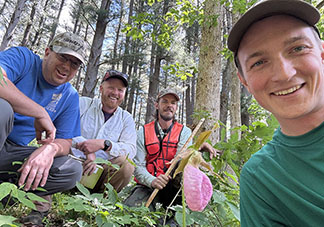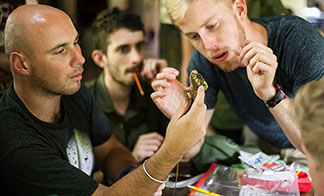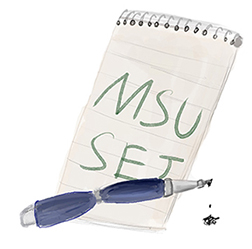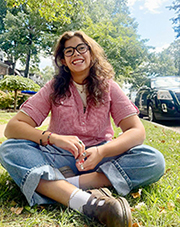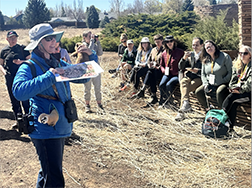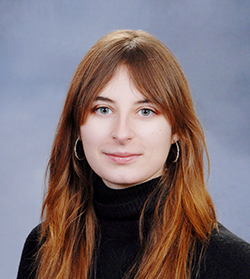Three Knight Center for Environmental Journalism researchers presented their work at the Conference on Communication and the Environment, held June 23–27, 2025, at the University of Tasmania in Hobart, Australia.
Research Director Bruno Takahashi presented the ongoing project, “The Discursive (De)construction of Oil Spills: A Case Study of Mediaciones in the Peruvian Amazon.” The project, in collaboration with doctoral student Iasmim Amiden dos Santos, combines in-depth interviews with journalists, Indigenous communicators and community members, with participant observation and media content analysis, to unpack how oil spills are framed and contested.
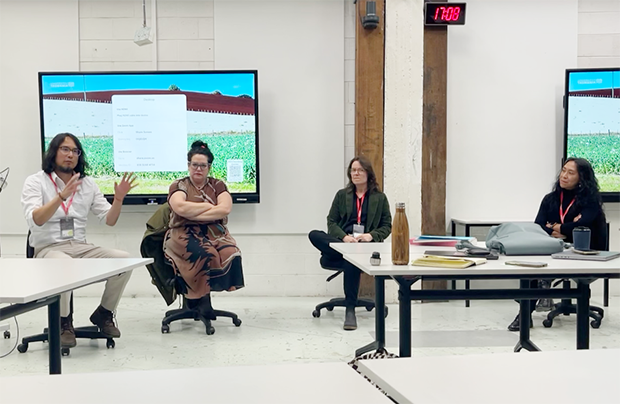
Bruno Takahashi during the discussion of his study
Takahashi also joined the panel “Publishing Environmental Communication: From Aggravations to Aspirations,” sharing insights from his experience as an editor and highlighting ways to make academic publishing more accessible to researchers in the Global South.
Amiden dos Santos also showcased her study, “Ecofeminist and Ecocentric Discourses in Brazilian Independent Media Coverage of the Pantanal and Cerrado.” Her discourse analysis revealed how two independent news outlets in Brazil broke from conventional journalism norms to center marginalized voices, reflecting ecofeminist, anti-capitalist and decolonial perspectives.
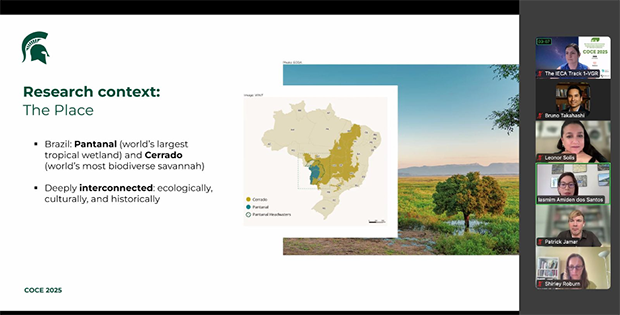
Iasmim Amiden dos Santos presenting virtually her study
First-year MA student Julia Belden presented “A Killer Whale Tale: An Analysis of The Miami Herald’s Coverage of the Orca Tokitae from 1970 to 2023.” Her work traced how the newspaper’s coverage shifted over five decades—from entertainment and spectacle to animal welfare, business, and conflict—capturing evolving public attitudes toward a single, iconic animal.
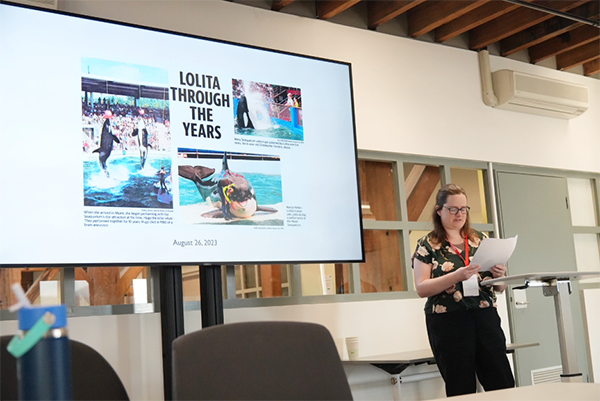
Julia Belden presenting her study
Belden also participated in the conference’s pre- and post-events. The pre-conference brought together graduate students from around the world to share experiences and learn about academic scholarship from senior researchers. The post-conference was a Deep Ecology workshop that invited participants to deepen their connection with nature through guided reflection and immersive activities.
These presentations and activities highlight the Knight Center’s expanding role in global conversations on environmental journalism and its commitment to fostering research with international reach and impact.

